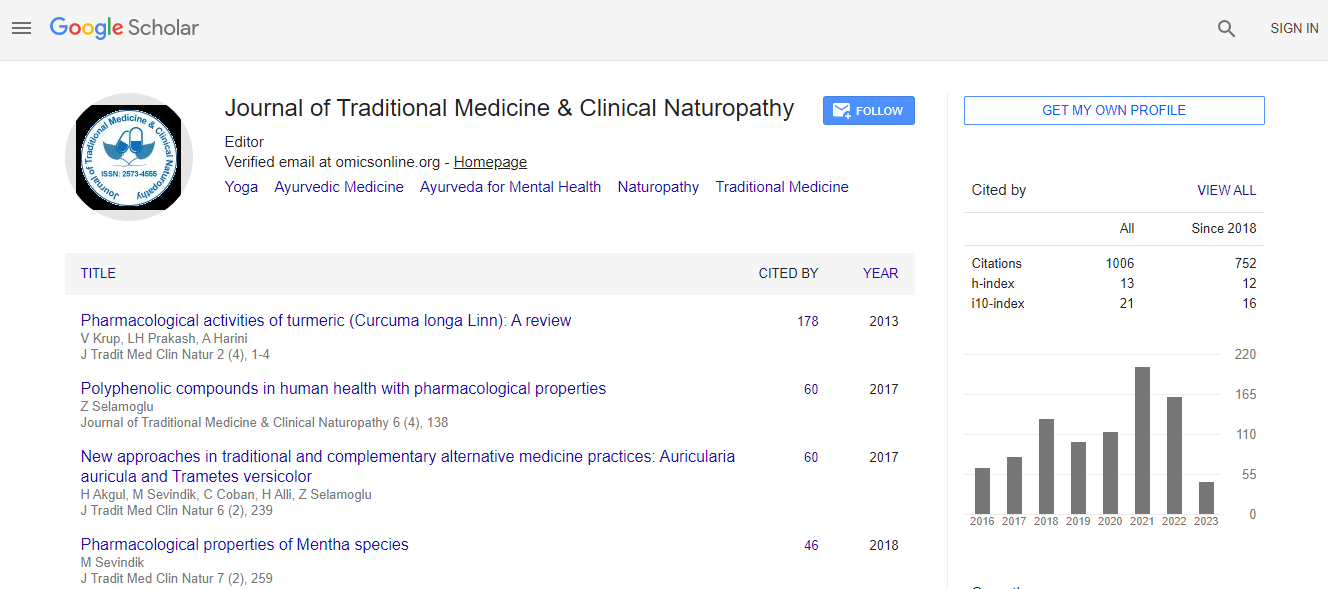Antibacterial Properties of Ethanolic Extracts of Propolis collected from Southwest Ethiopia
*Corresponding Author: Getahun Befirdu Abza, Department of Pharmacy, Jimma University, P.O. Box 378, Jimma, Ethiopia, Tel: +251911318816, Email: getahun.befirdu@ju.edu.etReceived Date: Sep 18, 2020 / Accepted Date: Oct 02, 2020 / Published Date: Oct 09, 2020
Citation: Abza CG (2020) Antibacterial Properties of Ethanolic Extracts of Propolis collected from Southwest Ethiopia. J Tradit Med Clin Natur S4: 293.
Copyright: © 2020 Abza GB, et al. This is an open-access article distributed under the terms of the Creative Commons Attribution License, which permits unrestricted use, distribution, and reproduction in any medium, provided the original author and source are credited.
Abstract
Background: The effectiveness of antimicrobial drugs becomes uncertain due to the emergence of multidrug resistant microorganisms, which highlights the need for alternative antibacterial agents. Natural products are of great importance in the search for biologically active compounds.
Aim of Study: The present study aimed at investigating the antibacterial properties of propolis, one of the bee products, against S. aureus, P. aeruginosa and E. coli.
Materials and methods: Propolis was extracted using 30%, 50%, 70%, and 99.9% ethanol. The in vitro antibacterial activity of crude propolis extracts was evaluated by the disc diffusion method with concentrations between 500 and 4000 μg/ml.
Results: Among all ethanol extracts, the 50% and 70% propolis extracts showed strong antibacterial activity against all tested strains with inhibition zones ranging from 6.64 ± 0.15 to 11.99 ± 0.04 mm. P. aeruginosa was sensitive strain to the ethanolic extract of propolis with the highest inhibition zone diameter of 11.99 ± 0.04 mm. Statistically significant difference in growth inhibition was observed among the types of extracts (30%, 50%, 70% and 99.9%) against P. aeruginosa (p<0.05) and E. coli (p<0.05), but the effect was not significant against S. aureus (p>0.05). All propolis extracts showed no effect on S. aureus at concentrations below 2000 μg/ml. Propolis extracts showed a lower zone of inhibition compared to the effect demonstrated by the positive control.
Conclusion: The present study verifies the antibacterial potential of Ethiopian propolis which could be of clinical benefit.

 Spanish
Spanish  Chinese
Chinese  Russian
Russian  German
German  French
French  Japanese
Japanese  Portuguese
Portuguese  Hindi
Hindi 
